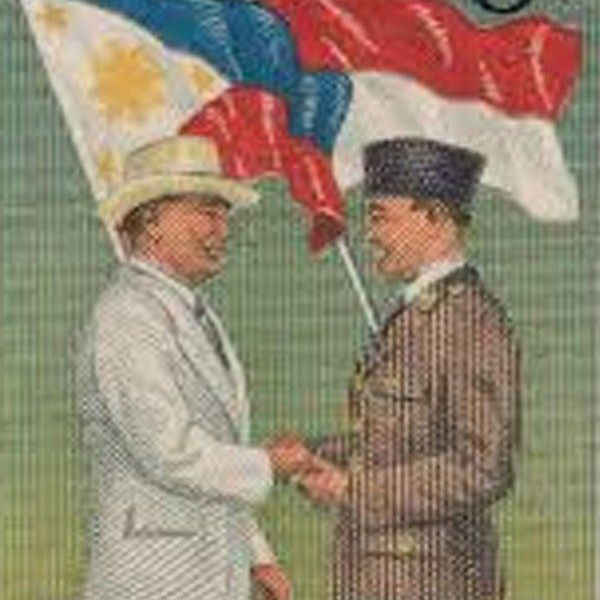You might have heard of NBC’s almost-show, “Mail Order Family,” and the controversy surrounding its epic and swift demise a few weeks ago. The short-lived affair involved, as these things tend to do, Twitter, Asians, and an innocuously intentioned yet outrageously offensive story premise. It went something like this: A middle-aged widower needs help caring for his preteen daughters, and decides to order, presumably from some 1980s catalog, a Filipina wife.
Naturally, once the show was announced, everyone in their right minds was outraged. The fact that this story was to be a premise, not for a somber documentary about human trafficking, but for a network television comedy, sent a clear message to American audiences: Filipina mail-order wives are funny, or something. (By the way, NBC producers aren’t the only ones with a misguided sense of humor. In 2009, Alec Baldwin was famously banned from the Philippines after a joke he made on the Late Show about getting himself a Filipina mail-order bride because he wanted more children.)
Thankfully, “Mail Order Family” was hastily cancelled, even before I could complete my nine-part Twitter rage rant. But questions still arise. What exactly was the show about? Was it really a story about another quirky, unconventional American family, or about a decades-old billion-dollar industry? What is a mail-order bride?
A brief history of an old industry
According to “Mail Order Family” writer Jackie Clarke, the idea for the show was based on real-life experience: Her own stepmother was a Filipina woman that her father, a widower, found in a mail-order bride catalog (she recounts in a podcast that he would pass these catalogs around the dinner table for her and her sister to flip through and choose from... Ugh.). The beginnings of the mail-order bride industry in the U.S. can be traced back to the 1800s; “picture brides” from Japan and China were common for Asian immigrant men in the West, especially since anti-miscegenation laws prevented marriages with white American women.
It is often conjectured that the modern mail-order bride industry sprang up in the 1970s as American men, discontented with the horrors of the women's movement and the feminist monsters it created, placed their hopes in marrying Asian women who were perceived to be more traditional, docile, and, of course, alluringly exotic.
Today, instead of the catalogs of the '70s and '80s, there are websites that look almost like typical online dating sites, but are facilitated by agencies who get paid thousands to broker marriages between their clients (usually wealthy men from developed countries) and foreign women (usually from countries in Southeast Asia and Eastern Europe). These women are typically in their 20s, socially or economically disadvantaged, and, out of the listings of women from Southeast Asia, 70% are from the Philippines. Clients from the U.S., which holds one of the largest markets for Filipina brides, are found to be mostly white, politically conservative, and economically high status.
In fact, the producer-consumer relationship between the Philippines and the U.S. in this industry is one of many facets of a larger, multi-layered relationship — one that is rooted in a history of colonialism and the gendered, sexual stereotypes that were born from it.
The oriental fantasy
The mail-order bride industry and all associated activities were made illegal in the Philippines in 1990 with the Anti-Mail Order Bride Law; however, this only served to push the industry underground, beyond the reach of government regulation, while also doing nothing to prevent such activities happening in so-called “import” nations (e.g. the U.S.). This creates the potential for exploitation (sometimes violent, as there have been recorded cases of domestic violence within these brokered marriages), entangled with ever-present threats of racist stereotyping and fetishization.
“Many Filipina today have an innocent, naïve and compliant side of their character. Some people joke that 'women’s liberation' has hardly reached the culture…. Their softness, sweetness, sensitivity and serving natures make great wives for a foreign man of any age.” — rosebrides.com
“Most of these ladies really are looking for a chance to meet a decent guy and become a happy Catholic housewife. So, if you are looking for a sweet, sexy, realistic, young bride, then maybe a Filipina girlfriend is right for you.” — christianfilipina.com
“Taking care of the husband, children and other immediate family members is one of the admirable traits of the Filipino woman and she will sacrifice dreams and ambitions to ensure that members of her household are content... The submissive nature of these women are part of their culture and this in another quality that Western men find attractive and alluring.” — filipinomailorderbrides.org
The above are all excerpts taken from current websites advertising Filipina women as the perfect wives. (And I won't blame you if you threw up a little in your mouth while reading those.) This fantasy of the sweet, demure, and submissive Asian woman is centuries old and yet, horrifyingly enough, still rears its ugly head today.
Of course, the image that these brokers and advertisers perpetuate is far from the truth — the women on these websites are hoping less to play the role of subservient Asian housewife than to find prosperity and better opportunities in another country. But the fact remains that it is this fantasy of the perfect Filipina wife (seriously, it's 2016, I can't believe this is still a thing) that is the driving force of the mail-order bride industry in the Philippines.
So, indeed, it was from these cultural contexts that the real-life experience of Jackie Clarke and her mail-order stepmother emerged. The lesson learned is that when we tell our stories, we must learn how they fit in a broader context, and we must be able to use history to paint a nuanced picture in all its true colors, shades, and hues.
To trivialize an exploitative industry embedded with racism, sexism, and colonial oppression, just to tell your life's story in a way that you can commercially benefit from it? It's far from comedy.





















